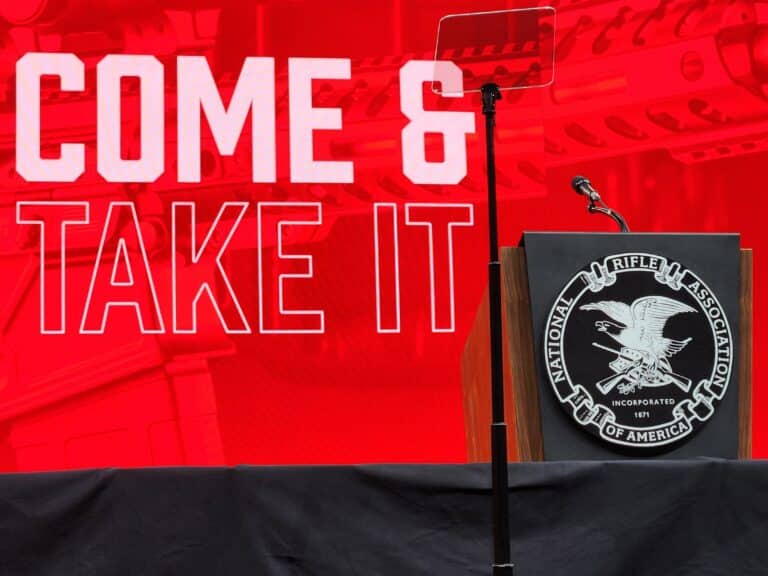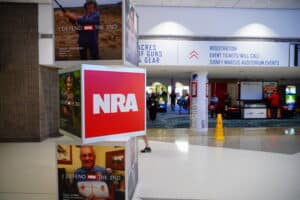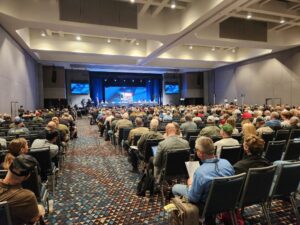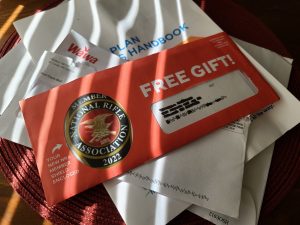Irving, Texas — A 15-hour meeting of the National Rifle Association’s board of directors ended just after midnight on Saturday with a reform plan.
The meeting, which was in a confidential executive session for nearly 12 hours, produced a proposal the board will send to New York Attorney General Letitia James and Judge Joel Cohen in an effort to finalize the group’s long-running civil corruption case. However, details of the proposal were not made public. Doug Hamlin, the new CEO and Executive Vice President of the NRA, said the meeting went so long because there was significant disagreement over the right approach, and the NRA wouldn’t immediately make details of the proposal public because it was part of ongoing litigation.
“During the marathon session today, there was not universal agreement on all the major issues discussed,” Hamlin told The Reload. “On some of the tactical elements, there wasn’t an entire consensus. However, we do agree that the primary goal is to return the NRA to its rightful place in American society.”
While details of the proposal weren’t made public at the end of the meeting, they likely address the reforms suggested by Judge Joel Cohen during his bench ruling in July. The judge denied James’s request for a court-appointed monitor to oversee the NRA’s operations. However, he also banned Wayne LaPierre from working for the group for ten years and said the NRA should implement additional reforms.
He proposed turning “some or all” of the reforms suggested by the NRA’s Audit Committee on the eve of trial into a court order. He suggested “expand[ing] the path” in order to avoid “unhealthy entrenchment.” Cohen said the NRA should hire an in-house consultant to “recommend best practices.” He also recommended barring those on the Audit Committee during the corruption allegations from serving in leadership roles on that committee. He also said the NRA should reduce the size of its board because large boards can be “unmanageable.”
Judge Cohen then left it up to the two parties to work out the details of those reforms, which he would then turn into a court order. If the two sides can’t agree, the judge will settle whatever disputes they have over the details.
Multiple sources on the board told The Reload that efforts to unfurl the Special Litigation Committee, which oversees the group’s legal strategy and representation in the New York civil corruption trial, failed. The committee, made up of former President Charles Cotton, current President Bob Barr, and longtime board member David Coy, will continue to oversee that work for the foreseeable future. Additionally, the Brewer law firm will continue to represent the NRA as the group works toward resolving the civil case.
Board members wouldn’t discuss details of what happened during the confidential executive session. However, during the open session of the board that preceded it, there was a debate over adding a section to the agenda to discuss the committee’s role that indicated a two-thirds vote would be required to enact significant changes. It appears those looking to disband or reshape the committee couldn’t meet that threshold.
The Brewer firm and its namesake, Bill Brewer, have played a key role in the NRA’s fight with New York over the past half-decade. The firm has devised and carried out most of the gun-rights group’s legal strategy during that time. That has made the firm a polarizing figure inside the organization, with members of leadership and supporters of previous CEO Wayne LaPierre backing it while newer reformers criticizing its approach and the more than $180 million the NRA has paid the firm.
The rest of the board’s open session was dominated by the group’s new compliance efforts, attempts to stabilize staff and bring back members, and its political operations. It featured presentations from the group’s new director of compliance about progress on its newly implemented safeguards. The head of the Institute for Legislative Action, the NRA’s political arm, also spoke on the group’s intention to activate 1.5 million gun owners across the swing states who voted in one of the two last elections.
The group said it is still working to schedule another event with Former President Donald Trump before the election.
Hamlin detailed issues with understaffing and loss of outside support facing the group, noting, for instance, that its competition section had declined from 22 staffers to two and a half. He said over 8,000 clubs had ended their affiliation with the NRA during the past six years. However, he also noted the NRA was still far larger than all of the alternative gun-rights groups combined and said the group was moving faster toward recovery than he’d expected.
“NRA 2.0 is ahead of schedule,” Hamlin told The Reload. “In the months of May, June, and July, our membership revenues were ahead of budget for the first time in years. Membership in July was up compared to June for the first time in years.”
The board agreed its next meeting would be held at 9 am central time at the same Omni hotel in Arlington, Texas, on January 11th, 2025.







One Response
Such as is with the Board of Directors and senior management of the NRA they can still KMA for any future donations as long as Brewer is affiliated with and the SLC still exist in the NRA. signed a still Disgruntled Endowment Member